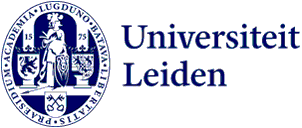
Alumna Tessa Schiethart: 'If I could go back to my student days, I’d go right away'
That Tessa Schiethart finished her bachelor's degree in International Studies with a thesis on Indonesian women's reasons for veiling was a coincidence. Or so she thought. Six years later, her book Seeing and Being Seen, in which she writes about her life with a wine stain and vision loss, is in the bookshops.
'When I look back on my thesis topic now, I think: it had to be that way, but as a girl I just thought: Oh, I think that's an interesting subject,' Tessa laughs. She specialised in Asia during her bachelor's in International Studies, and, being an avid student, she also regularly joined Leiden courses on anthropology, Buddhism and Hinduism. 'If I could go back, I’d do it immediately,' she says. 'I enjoy reading and writing, and I loved being able to absorb all that information.'
Still, she says she was not a conventional student. 'Before going to university, I had discovered yoga and ayurveda in a gap year. I found both of these so interesting that I got up at five, so that I had time for meditation and yoga before being in the lecture hall at nine. And then I was often sitting there among students with hangovers.’
Sturge-Weber syndrome
Tessa's interest in philosophy and holistic medicine stems in part from her own situation. She was born with Sturge-Weber syndrome, which left her with a large birthmark on her face and reduced vision in one eye. ‘When I started my studies, my vision was pretty stable, but I often needed extra time because my eyes processed a text differently. Fortunately, from elementary school to university, I found that educational institutions took my situation into consideration, but especially in a large organisation like the university, you do need to say what your needs are.’
From personal story to thesis
Whereas Tessa's condition caused mainly practical challenges during her bachelor's degree, from her master's degree in Culture, Organization and Management at the Vrije Universiteit onward, it has occupied an increasingly prominent place in her work. 'When we talked about diversity and inclusion in lectures, it was often accompanied by a kind of pigeonholing. You had age, gender, ethnicity and that was it, while I wondered about other outward appearances. What does it do if you have a different face from the norm? And then a friend of mine said: Why don't you write a thesis about that?’
Tessa opted to share her own story on Instagram, hoping to get stories back from others. The response has been overwhelming: instead of the sixteen applications for in-depth interviews she needs for her thesis research, she has received more than two hundred stories. 'I could have easily done a PhD on the subject, but I preferred to help people,' she says. 'So eventually I turned my research into a practice where I counsel women around the themes of visibility, beauty, being unique, creating peace and dealing with unexplained symptoms.'
Writing dream
The concept caught on, and after a few years Tessa was approached to write a book. ‘Writing had been a dream of mine for a long time, so this request was a great gift. And as far as she is concerned, Seeing and Being Seen will not be her last book. 'When you live in a body that sometimes leaves you guessing what it's going to do next, the question of what you're going to do in the future is fraught, but I'd like to expand on the themes I'm working with now. In fact, I'm already doing some work on a book about beauty. And then not about what products to put on your skin, but why you should put products on your skin in the first place. Again, that's about seeing and being seen. In a bizarre way, all the steps on my path seem to connect really well together. I love that.’
